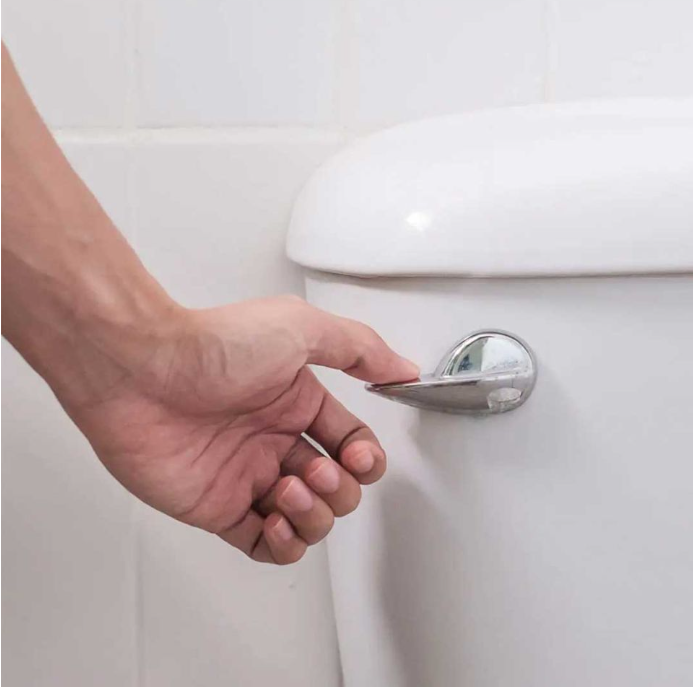Smelly urine can be alarming, especially when it appears unexpectedly. While it can be caused by simple lifestyle factors, like the foods you eat, it can also be a symptom of more serious health issues. Understanding the potential causes of smelly urine can help you determine when to address it with simple adjustments or when it’s time to consult a healthcare professional. In this article, we’ll explore 10 common causes of smelly urine and what actions you should take in each case.

Cause 1: Dehydration – The Role of Hydration in Urine Odor
One of the most common causes of smelly urine is dehydration. When your body lacks sufficient water, your urine becomes more concentrated, resulting in a stronger, more pungent odor. Dark yellow urine is often another clear sign of dehydration.
What to do: Drink plenty of water throughout the day to keep your body well-hydrated. Aim for at least eight glasses a day, though more may be needed if you’re active or live in a hot climate.
Cause 2: Dietary Factors – Foods and Drinks That Affect Urine Smell
Certain foods and drinks can have a direct impact on the smell of your urine. For instance, asparagus is well-known for giving urine a strong odor, often described as sulfurous. Other culprits include garlic, onions, coffee, and alcohol.
What to do: If you notice that your urine smells stronger after consuming certain foods or drinks, it’s likely temporary. Drinking more water can help dilute the smell, or you can reduce your intake of the offending foods.
Cause 3: Urinary Tract Infections (UTIs) – Symptoms and Implications
Urinary tract infections (UTIs) are a common cause of foul-smelling urine. Along with odor, UTIs often cause a burning sensation when urinating, frequent urges to urinate, and sometimes cloudy or discolored urine.
What to do: If you suspect you have a UTI, it’s important to see a healthcare provider. Treatment typically involves antibiotics, and addressing the infection promptly will prevent it from worsening.
Cause 4: Diabetes – How Blood Sugar Levels Impact Urine Odor
For individuals with uncontrolled diabetes, sweet-smelling urine can be a sign that blood sugar levels are too high. This occurs when excess glucose is excreted through the urine, creating a distinct, fruity smell.
What to do: If you have diabetes and notice sweet-smelling urine, it may indicate that your blood sugar levels are not well-controlled. Consult your healthcare provider to review your diabetes management plan.
Cause 5: Kidney Infections – Signs and Consequences
A kidney infection, also known as pyelonephritis, can lead to smelly urine, along with symptoms like fever, chills, back pain, and a general feeling of illness. Kidney infections are serious and can cause permanent damage if left untreated.
What to do: If you suspect a kidney infection, seek medical help immediately. Treatment usually involves antibiotics, and early intervention is key to avoiding complications.
Cause 6: Liver Disease – Connection Between Liver Function and Urine Odor

Liver disease can cause a musty or sweet odor in urine due to the accumulation of toxins that the liver typically filters out. Other signs of liver issues include jaundice (yellowing of the skin and eyes), fatigue, and swelling in the abdomen.
What to do: If you experience these symptoms, consult a doctor for a thorough evaluation. Blood tests and imaging may be needed to assess liver function and guide treatment.
Cause 7: Certain Medications – Drug-Induced Changes in Urine Smell
Some medications can alter the smell of your urine. Antibiotics, particularly those used to treat UTIs, as well as certain vitamins (notably B vitamins), and chemotherapy drugs are known to change urine odor.
What to do: If you’ve recently started a new medication and notice a change in urine smell, speak with your healthcare provider. While this side effect is usually harmless, your doctor can confirm whether it’s expected or if adjustments are needed.
Cause 8: Metabolic Disorders – Genetic Conditions Affecting Urine

Certain rare metabolic disorders can cause your urine to have an unusual odor. For example, maple syrup urine disease makes urine smell sweet, while trimethylaminuria causes a fishy odor. These conditions are typically genetic and diagnosed in childhood.
What to do: If you suspect a metabolic disorder, genetic testing and consultation with a specialist are necessary. Treatment usually involves dietary management to control the symptoms.
Cause 9: Bacterial Vaginosis (BV) – Vaginal Health and Urine Odor
For women, bacterial vaginosis can result in a fishy-smelling odor that might be noticeable in the urine. BV occurs when the natural balance of bacteria in the vagina is disrupted, often causing discharge, itching, and odor.
What to do: If you think you have BV, see your healthcare provider. Treatment typically includes antibiotics, and restoring the balance of bacteria can help eliminate the odor.
Cause 10: Prostatitis – Prostate Infections and Urinary Changes

In men, prostatitis, or inflammation of the prostate, can lead to smelly urine along with other symptoms like pain during urination, difficulty urinating, and pelvic discomfort. This condition often results from bacterial infections and requires medical attention.
What to do: Men experiencing these symptoms should consult a doctor. Antibiotic treatment is often necessary to address the infection and reduce inflammation.
When to Seek Medical Help – Recognizing Serious Symptoms
While many causes of smelly urine are harmless and temporary, there are times when medical help is necessary. You should seek professional advice if your smelly urine is accompanied by:
- Blood in your urine
- Painful urination
- Fever or chills
- Persistent foul odor that doesn’t go away
Addressing these symptoms early can help prevent more serious health issues from developing.
Home Remedies and Prevention Tips – Managing and Reducing Odor

Managing and preventing smelly urine can often be done with a few simple lifestyle adjustments:
- Stay hydrated: Drinking enough water can help dilute urine and reduce odor.
- Maintain good hygiene: Proper hygiene can prevent bacterial infections that cause odor.
- Limit odor-causing foods: If certain foods lead to strong-smelling urine, moderate your intake.
- Probiotics: Taking probiotics can promote healthy bacterial balance in your urinary and digestive systems, reducing odor.
Conclusion: Maintaining Urinary Health
Smelly urine can be caused by a variety of factors, some more serious than others. While many cases are harmless and easily remedied through hydration or dietary changes, it’s important to stay mindful of any additional symptoms that could indicate a health issue. By understanding the causes of smelly urine and taking appropriate actions, you can maintain your urinary health and overall well-being. If in doubt, always consult a healthcare provider to rule out more serious conditions.


